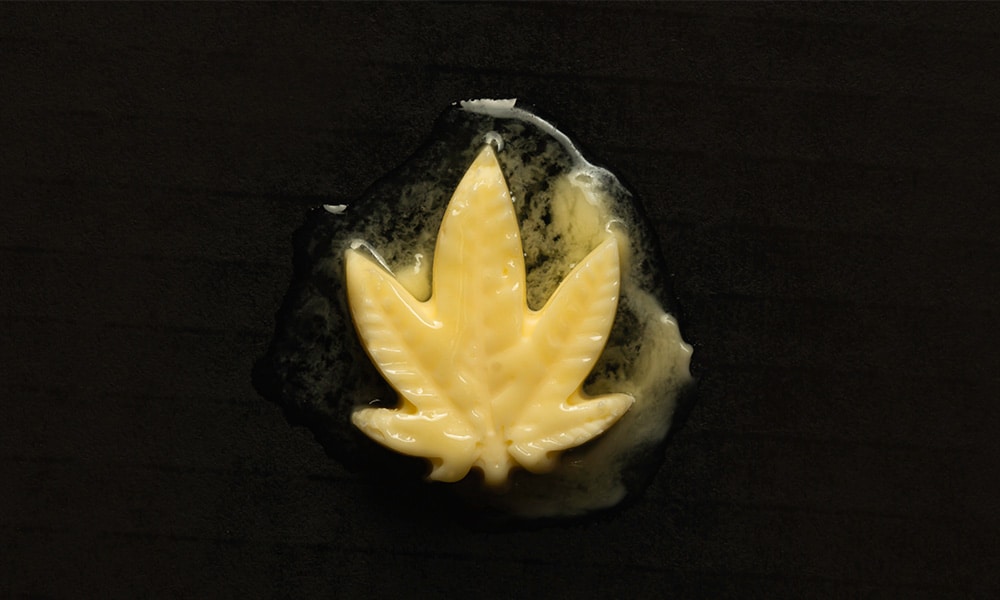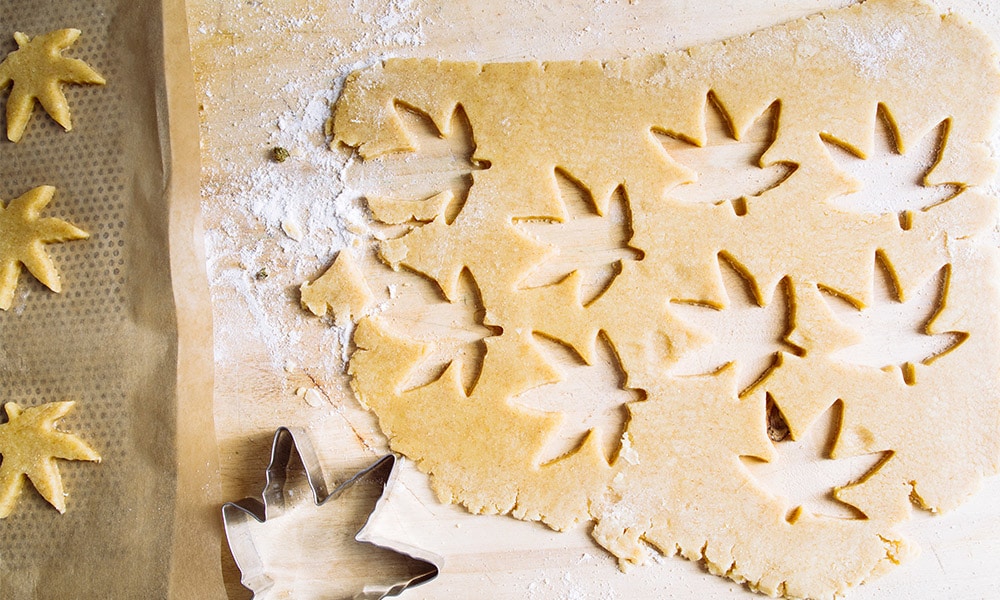Edibles have quickly become a popular method of cannabis consumption. There are all kinds of foods and beverages on the market, such as cookies, chocolates, sparkling waters, coffee, and more. Did you know, though, that you don’t always have to purchase premade edibles? You can create all manner of edibles in your kitchen with infused butter. Here’s what you need to know about cooking with cannabutter.
What Is Cannabutter?
Cannabutter is butter that you infuse with cannabis, and you can make right in your kitchen. It provides you with a simple way to make a wide variety of edibles at home. Making it, however, does take a bit of time.
The first step of making cannabutter is to decarboxylate your chosen flower. The process involves heating your buds in the oven. The general recommendation is low and slow, so you don’t destroy the cannabinoids and delicate terpenes. Preheat your oven to 245 degrees Fahrenheit and place the buds in the oven for 30 to 40 minutes. Mix them every 10 minutes so that all surfaces are exposed.
When they’re finished, grind the buds coarsely in a hand grinder. Melt the butter with water on the stovetop. Then add in your ground cannabis. Simmer the mixture over low heat for two to three hours, stirring occasionally. Add more water as necessary.
Next, strain the mixture through a cheesecloth to separate the plant material. Then, place it in the refrigerator to solidify. If there is any remaining water, you can drain it, and your butter is ready to use.
How Can You Use Cannabutter?
With cannabutter, the possibilities are practically endless. You can use it in just about any recipe that uses regular butter. Some options to consider include:
- Spreading it onto your toast
- Brownies
- Cookies
- Cakes
- Buttercream icings
- Dutch coffee
- Sauteing vegetables
- Popcorn
- Soups
- Dips
- Buttered pasta
- Macaroni and cheese
Mistakes to Avoid
To ensure enjoyable edibles that provide the effects you’re after, here are a few mistakes to avoid:
Forgetting to Decarboxylate
The decarboxylation process is vital for activating THC and other cannabinoids. Forgetting this step can lead to weak, ineffective edibles.
Not Adding Water to Your Butter
It might seem counterintuitive to add water to butter, but it helps to regulate the temperature of your cooking mixture and keeps the butter from scorching. Don’t forget to add more as necessary.
Not Stirring the Pot
Stirring helps to ensure that the cannabis is evenly distributed throughout your butter.
Grinding the Buds to Fine
If the grind is too fine, plant matter can slip through the cheesecloth and into your final product, leaving your butter tasting anything but pleasant. Be sure to grind your buds coarsely to keep this from happening.
Squeezing the Cheese Cloth
It’s tempting to squeeze every last bit of butter through the cheesecloth but in doing so, you could inadvertently force plant material through the mesh. Instead, let the butter drain naturally through.
Enjoy Cooking with Cannabutter at Home
By making homemade cannabutter, you open up a world of culinary possibilities. Have fun making your favorite recipes from the comfort of your own kitchen.



